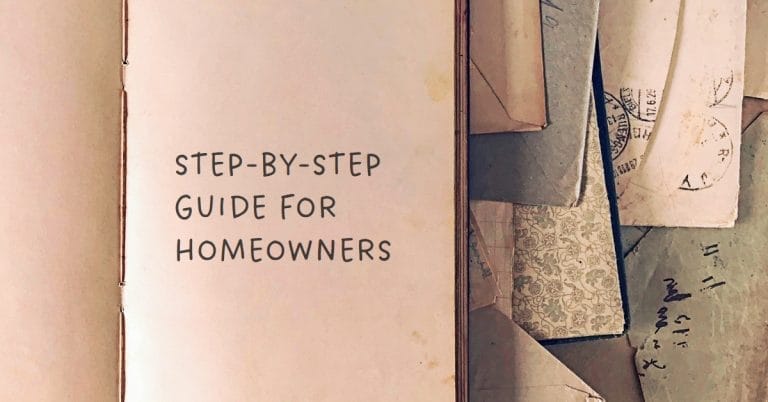How to Use Gold to Fund Your Dream Home Purchase
For many, the path to homeownership involves long-term savings, disciplined budgeting, and taking out a mortgage. However, an often-overlooked strategy to accelerate the home buying process is leveraging gold as a financial asset. As one of the oldest forms of investment, gold has been trusted for centuries as a store of value. Today, gold can play a pivotal role in helping you secure your dream home—whether by liquidating it for cash, using it as collateral, or incorporating it into your overall investment strategy.
Gold offers various advantages that make it an appealing tool for home buyers. It’s a tangible asset, often unaffected by market fluctuations that can impact stocks or property values, making it a stable option in volatile economic times. If you’re considering buying a home and have a stash of gold or are thinking of acquiring gold, understanding how to strategically use it could be key to unlocking homeownership faster than anticipated.
Liquidating Gold to Boost Your Home Deposit
When preparing to purchase a home, one of the most significant hurdles is often saving enough for the down payment. Traditional methods of saving through high-interest savings accounts or mutual funds can take time, and market conditions can affect the growth of your investments. On the other hand, gold, particularly in the form of bullion, can appreciate steadily over time.
If you’ve invested in gold over the years and it has gained value, liquidating part of your holdings can give your home deposit a substantial boost. By selling gold at the right time, when market prices are high, you can turn that asset into cash and use it to increase your deposit. This not only brings you closer to homeownership but can also reduce the amount you need to borrow, which in turn reduces your long-term mortgage payments.
It’s important to work with a reputable gold dealer when you’re ready to sell. A trusted bullion dealer in Brisbane or your local area can help you get a fair price for your gold, ensuring you maximise your returns for use toward your home purchase. The process is typically straightforward, with dealers assessing the gold’s weight, purity, and current market value to provide you with a quote.
Using Gold as Collateral for a Home Loan
Gold doesn’t only need to be sold to be useful in your home buying journey—it can also serve as collateral for a loan. Many financial institutions and gold loan providers offer secured loans with gold as collateral, meaning you can borrow against your gold without having to sell it. This is especially beneficial if you expect the value of gold to rise in the future and don’t want to permanently part with your investment.
Gold-backed loans generally come with lower interest rates than unsecured loans because they are considered less risky for lenders. By using your gold as collateral, you can potentially borrow a larger amount at a better rate, providing additional funds for your down payment or other home-related expenses.
Before deciding to use gold for collateral, it’s essential to compare loan offers and understand the terms, including interest rates and repayment periods. Be sure to evaluate whether you can meet the loan’s requirements without financial strain, as failing to repay a gold-backed loan could result in losing your gold.
Diversifying Investments: Balancing Gold and Real Estate
When building wealth, diversification is a fundamental strategy. Both gold and real estate are tangible assets, but they serve different purposes in an investment portfolio. Gold is often seen as a hedge against inflation and market volatility, whereas real estate provides the potential for long-term appreciation and passive income through rental properties.
By owning gold and property, you diversify your risk, ensuring that your financial security isn’t overly reliant on a single asset class. If one market falters, the other may perform well, balancing your portfolio. For home buyers, this means that by maintaining gold holdings, you still have a safety net even after purchasing a home.
While many people see real estate as a more active investment compared to gold, both require long-term commitment and understanding of market conditions. For example, property markets are influenced by interest rates, location, and local economic factors, while the value of gold is driven by global supply and demand, geopolitical events, and inflation.
By balancing these investments, you can strategically decide when to move funds from one asset class to another. For example, if the housing market is favourable but gold prices are low, it might be wise to hold off on selling your gold. On the other hand, if gold prices surge, liquidating some of your holdings to invest in property could yield better returns over time.
Timing the Market: When Should You Sell Gold to Fund a Home?
Timing is crucial when selling gold to fund a home purchase. Gold prices fluctuate based on a variety of factors, including inflation, interest rates, and global political stability. Before making a move, it’s important to keep an eye on these indicators to ensure you’re selling your gold when the market is strong.
Tracking the price of gold over time and consulting with financial advisors or market analysts can help you make informed decisions. Many people find success by selling gold when the prices peak during times of economic uncertainty or inflation. If you’re not in a hurry to purchase your home, it may be worth waiting for the right moment to maximise your returns.
It’s also a good idea to regularly assess the value of your gold investments in relation to the real estate market. If home prices in your desired location are rising faster than your gold is appreciating, it may be better to act sooner rather than waiting for further increases in gold value.

Planning for the Future: How Gold Can Continue to Benefit You After Homeownership
Once you’ve achieved your goal of purchasing a home, gold can still play an important role in your financial life. It can be used as a reserve asset for emergencies or to fund future renovations and property investments. Having some gold in your portfolio provides liquidity that can be accessed quickly in times of need.
Furthermore, gold can continue to act as a hedge against inflation, ensuring your overall wealth remains protected as market conditions change. For example, if property values decrease due to economic downturns, your gold holdings might maintain or even increase in value, offering stability when real estate markets falter.
In essence, by viewing gold not just as a short-term tool to fund a home purchase but as a long-term asset, you ensure greater financial resilience across your life stages. Whether you’re investing in property, saving for retirement, or building a safety net, gold can be a versatile asset in your financial plan.
Final Thoughts
Gold is more than just a shiny metal—it’s a powerful financial asset that can play a pivotal role in helping you achieve your homeownership dreams. Whether you liquidate it to boost your deposit, use it as collateral for a loan, or incorporate it into a balanced investment strategy, gold can accelerate your path to owning a home. By understanding the various ways gold can be leveraged and timing your decisions carefully, you can make your investments work smarter for you. And after you’ve purchased your dream home, gold can continue to offer financial protection, ensuring long-term stability and growth for years to come.







